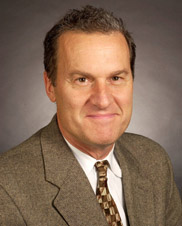New Department Expands Scope of Outcomes Research
 |
|
Dr. David Cella |
This spring, Feinberg School of Medicine announced the creation of the Department of Medical Social Sciences, which will focus on outcomes science, health measurement, quality of life issues, and the development of statistical tools to use in related research. The new department is led by David Cella, PhD, professor of Psychiatry and Behavioral Sciences at Feinberg and in the Institute for Healthcare Studies and the Robert H. Lurie Comprehensive Cancer Center. Dr. Cella previously served as the executive director for the Center on Outcomes Research and Education at NorthShore University HealthSystem, formerly known as Evanston Northwestern Healthcare.
The new department enhances Feinberg’s stature as a leader in outcomes research, which is playing an increasing role in finding the best, most effective ways to understand, diagnose, and treat illness. “This area of research is helping us evaluate how various treatment strategies affect results that are important to patients, including quality of life,” Dr. Cella says. He explains that establishing this department provides Feinberg with new and different opportunities to expand the scope of outcomes research. “In addition to supporting the efforts of clinical research studies, we will generate and participate in large-scale epidemiological studies that look at outcomes in relation to genetic factors, for example.”






